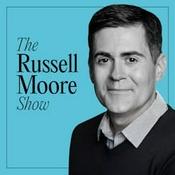What happens to a society when its boys grow up without a script for becoming men?
Watch the video of this episode on YouTube here.
In this conversation, Richard Reeves—author of Of Boys and Men (selected as a 2024 Summer read by President Obama), and founding president of the American Institute for Boys and Men—walks through the data and the deeper cultural currents beneath the struggle of the journey of boys becoming men. From rising male suicide rates to widening education gaps, and from sports betting addiction to body-image pressures once thought to belong mainly to girls, Reeves argues that boys and men are not so much acting out as checking out.
Reeves suggests that we tore up the old scripts of masculinity—and for good reason—but never replaced them with a compelling vision of what it means to be a man today. In that vacuum, some young men retreat to screens, pornography, and gaming; others gravitate toward louder, angrier answers. But Reeves sees something else underneath the check-out: a hunger for formation, for purpose, for being told not just what not to be, but what to become.
The conversation turns to the church’s unique opportunity at this moment. Russell and Richard reflect on Joseph as a model of quiet strength, the importance of rites of passage, the power of male friendship, and the simple but often neglected message young men need to hear: we need you.
In a time when many men feel optional, this episode is an invitation to recover a vision of manhood rooted not in dominance or drift, but in responsibility, community, and hope.
Resources mentioned in this episode:
Of Boys and Men by Richard Reeves
Keep up with Russell:
Sign up for the weekly newsletter where Russell shares thoughtful takes on big questions, offers a Christian perspective on life, and recommends books and music he's enjoying.
Submit a question for the show at
[email protected] Subscribe to the Christianity Today Magazine: Special offer for listeners of The Russell Moore Show: Click here for 25% off a subscription.
Learn more about your ad choices. Visit podcastchoices.com/adchoices

